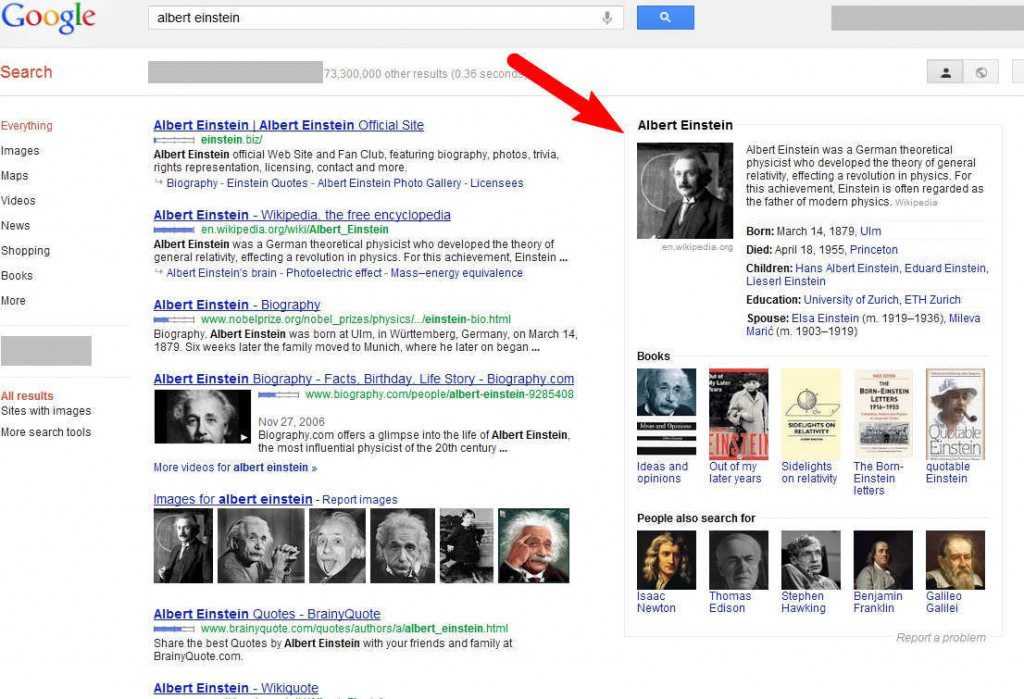There are two ways to watch what Google does with its search engines. One is through the eyes of the average user, and the other is through the eyes of an online publisher who is concerned about search engine traffic getting to his or her websites. (By extension, the SEO industry, which purports to help website owners do the right things to get traffic from search, also watches carefully.)
Google Knowledge Graph and Search Rankings
A number one search engine ranking is worth about twice the traffic of a number two search engine ranking and the traffic diminishes quickly from there. This is perhaps a sad commentary on how people use search engines, but be that as it may, it is true.
Anytime there is a Google change or modification, webmasters become concerned that their traffic will drop along with their income or popularity. Often, these concerns are valid. Sometimes, these concerns are selfish and have nothing to do with concern for actual readers.
Consider a low-quality, garbage, ad filled, website. If a Google update figures out how to drop this site out of the rankings, the owner of that site will be negatively impacted. The users doing searches, however, will not. In this case, you can be sure that most people won’t care if the owner complains.
In other scenarios, a Google change actually boosts such content ahead of good content. This is bad for everyone concerned. The owner gets less traffic, users find less helpful information, and Google’s reputation takes a hit.
The latest hubbub is about something called the Google Knowledge Graph. I’ll call it GKG from here on, but I don’t know if that will stick.
Essentially, the GKG actually answers certain kinds of queries rather than pointing you at a website that might do the same. For example, if you search on Albert Einstein, a new area to the left of the traditional search results appears. This is the GKG that everyone is talking about.
As you can see, the information there is rudimentary, but potentially very helpful for certain kinds of searchers. For example, if you are searching to find Mr. Einstein’s birthday, it is right there for you to see. This kind of GKG is potentially most detrimental to encyclopedia types of websites such as Wikipedia. It may also hurt websites like Huffington Post that routinely crank out any page, any time, that might pull in a few page views.
One common example is people searching for something like SuperBowl start time. In the past, the Huffington Post would publish and article with a dozen questions listed at the top in order to garner as many search matches as possible and then use its high-traffic website as all the link juice needed to push its page near the top of the search results. Assuming GKG answers these questions right on the search page, the some of those type of sites might lose traffic.
Fortunately, for many website owners and writers making money online with websites, this addition won’t have much impact on their traffic. These search results only show up for very specific queries, those where specific factual information is at hand from any number of sources. Incidentally, these types of searchers are generally looking to buy anything, so these are low click through advertising opportunities anyway. (They are valuable to big websites that generate a lot of cost per view types of revenue.)
Anyone writing useful detailed information probably will continue to draw just as much traffic since GKG only supplies basic details even on someone as famous as Albert Einstein. You can bet that not much will show up to siphon away traffic on your Colorado Dads website, for example.
For users making basic informational searches GKG will be a welcome addition. For everyone else, except the big web traffic slurpers, there won’t be much impact.
